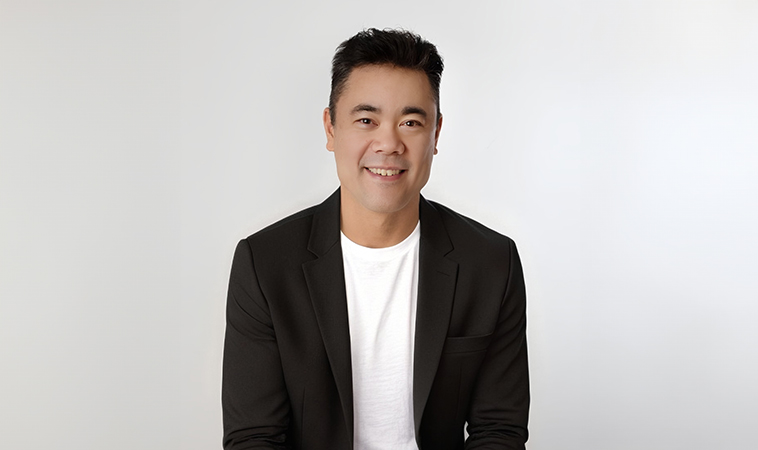From Glovo to kebabs: Jekes' recipe for success according to Carlos Esteve

Carlos Esteve is an entrepreneur with experience in consulting, Google and Glovo, where he led the development of Glovo Ads in Spain. With a strategic vision and passion for catering, he founded Jekes, redefining kebab with quality, transparency and operational efficiency. In this Q&A, Carlos talks about his career, the differentiation of Jekes and its expansion and digitalization strategy.
1. Career Path and Transition to Jekes
Before launching Jekes, you worked in consulting, Google and led Glovo Ads in Spain. What led you to take the leap into the restaurant industry?
I have always been attracted to working in businesses that I use in my day-to-day life. If I am a target and a customer, all the better. At Google I learned about marketing; at Glovo, a culture and values of teamwork that, surrounded by a lot of talent, have made Glovo a leader in delivery in 25 countries. After learning, I felt capable of entrepreneurship. Catering is a difficult challenge: tight margins, complex operations and demanding customers. But in return, you get immediate feedback and short-term profitability. If you do things right, the business responds quickly.
How did your experience at Glovo influence the creation and development of Jekes?
Glovo was my great school. We built Ads from scratch and I had bosses, team and colleagues with whom I would build any business. I saw brands born and die in months, and I understood that, if we wanted Jekes to have a future, we had to do it right from the start. I learned that a brand in delivery has twice the impact... for better or worse.
2. Jekes Concept and Differentiation
Jekes presents itself as "kebabs but good". What does this mean to you and how do you reflect it in your offer?
We have taken the kebab, treated it with love and given it the respect it deserves. Good product, good techniques and no fear of innovation. We wanted someone to be able to eat a kebab and think: "This is incredible and it has been great for me".
What aspects do you consider key to differentiate yourselves in such a competitive market as fast food?
- Quality without pretension: We're not gourmet, but we're not junk either. Just the best possible kebab at a fair price.
- Transparent experience: No dark and greasy premises. Here what you see is what you get.
- Real speed: 10 min on premises, 30 min at home. If it's fast food, make it really fast.
3. Growth and Expansion Strategy
After the opening of the first store near the Santiago Bernabéu, what are your expansion plans and how do you plan to maintain the essence of the brand in each new establishment?
We have used the first premises as a laboratory. We want to reach 20 quickly, but without losing quality or experience. We will grow with our heads, not for the sake of growing.
What challenges have you encountered growing up and how have you overcome them?
Every day we discover things we didn't know we didn't know. From overflowing expectations in the first few months to suppliers that play tricks on you. But the biggest challenge is maintaining quality and standardization as we scale. We haven't even been around for two years, we are still learning... and failing.
4. Innovation and Trends in Catering
With digitalization on the rise, how do you integrate technology at Jekes to enhance the customer experience?
From day one we went paperless. We use Square (such as POS, KDS, dataphones, loyalty) Haddock, Localboss, Andy, Muse, among others. We want to make ordering a Jekes easier than buying on Amazon. In addition, I am developing a side tech project, called Bartech, to improve sales forecasting. There is a lot of room to optimize purchasing and staffing with data and automation.
What current trends in the restaurant industry do you find most relevant and how are you incorporating them at Jekes?
- Affordable quality: Eat well without spending a kidney.
- Fast and real service: Less ultra-processed, more real products, but no long waits.
- Frictionless digitization: That the customer doesn't waste even 3 min to decide and order.
5. Future Vision and Strategic Partnerships
Looking ahead, what goals do you have for Jekes in the coming years?
- Continue to grow without losing quality.
- Expand in Madrid and 5 other cities.
- Let the kebab once again become a street reference.
Basically, we want more and more people to think and say: "I feel like a Jekes" in the near future.
You recently joined theRest's Lunch Club. What motivated you to join this community and how do you think it can benefit Jekes?
The purpose of many in the industry, to share ideas and experiences to save time, money and aggravation for others. In addition, theRest team is clear that improving delivery in Spain is everyone's mission. So let's go all out.
Conclusion:
Carlos Esteve has turned Jekes into an example of how fast food can evolve without losing its essence. His experience at Glovo taught him that digitalization and operational efficiency are key to scaling a business without compromising quality. Now, with a clear vision and a measured growth strategy, Jekes seeks to redefine kebab in Spain, betting on transparency, technological optimization and real speed at every point of contact with the customer.
Expansion in the restaurant industry no longer depends only on opening more stores, but also on doing so with a technological infrastructure that allows for frictionless scaling. Jekes represents a model where digitalization and growth go hand in hand: tools such as Square, Haddock, among others, not only improve operations, but also optimize decision-making in real time. In an industry where standardization and customer experience can define success or failure, integrating technology from the start is the difference between growing with control or losing your way as you scale.





